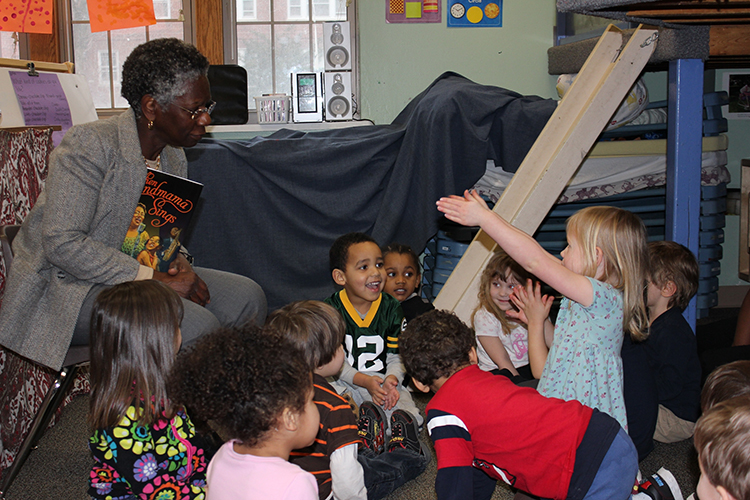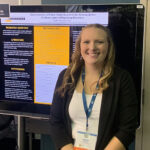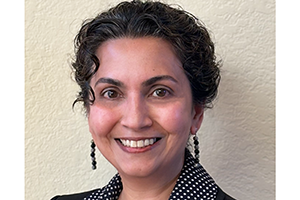Eloise Anderson has a longstanding interest in working to improve the Milwaukee community.
Anderson, secretary of the Wisconsin Department of Children and Families, studied urban planning and policy administration at UWM in 1974-’76, though she did not complete the master’s degree because of a job-related move. She has more than 20 years’ experience in state and county government in human resources and community services. Before being appointed to her current job in January 2011, she served as director of the California Department of Social Services, the largest welfare system in the country.
Her career is an extension of her lifelong desire to help children, and she hopes to cap that career by helping improve conditions in Milwaukee. So when Gov. Scott Walker announced he was directing $4.5 million more to Milwaukee to train workers, help businesses and deal with foreclosed homes after the violence in Sherman Park in August, Anderson was one of the state administrators he chose to help with the effort.
What inspired you to go into your career field?
I was doing family and community work in Toledo, Ohio, my hometown. My first job out of college (at Central State University in Ohio) was working with families, which included families headed by singIe women, many of whom were prostitutes or drug addicts. I was young. I didn’t know anything about prostitutes and addicts. I didn’t realize I was assigned to them because nobody else wanted to do it. There weren’t a lot of good outcomes. But that led me to start searching for answers to those problems very young.
What drew you to UWM?
I had left the workforce to be a parent and a wife. I was coming back into the workforce, and I realized that the undergraduate degree I had wasn’t enough. Not that I needed another degree, but I needed some more information.
Why did you focus on urban planning and policy?
Planning was an area of interest, and I wanted to know what it was and why it often didn’t work. I was also interested in what was happening in Milwaukee. When I came here, Milwaukee was a beautiful city… You didn’t have to lock the doors, the crime rate was low and the blacks in Milwaukee were probably the best-educated blacks in the country. I was curious about the drivers causing it to fall apart. I had my observations, but I wanted to look at the academic perspective. Academicians have a lot of influence on public policy – whether they’re right or not.
You say that there’s a great need for foster parents, and you’ve also been a foster parent yourself. What led you to become a foster parent?
All my life I’ve loved kids. When I was young, I wanted to open an orphanage. At Easter, I would drag my mother to the local orphanage to do black girls’ hair – they didn’t have anybody to do their hair. I knew that (the orphanage) wasn’t a good place for kids because I was a kid myself. So when I worked at a community agency and we ran an adoption program, I became a foster parent. I’ve never been one to tell people to do something I’ve never done.
What are the most challenging parts of your current job?
(Laughs)
Well, the top ones?
I am not a maintenance person, so every job I’ve ever had has required moving something in a different direction. And so to me the hardest part of the job is getting people to go to a place that wasn’t in their vision. One of the first changes was to bring juvenile services into this department. (The department oversees community treatment and prevention services for juveniles, but not incarceration or state juvenile facilities.) We try to do intervention to keep them out of the adult corrections system. Another was creating a Division of Milwaukee Child Protective Services. Those two pieces were big changes for the department, and both of them will take a while to settle in.
What are some of the rewarding parts of the job?
Probably the most rewarding is when people tell me they like working in the department. I think it’s important for the organization to be an employee-supportive organization and a learning organization. This is especially important for those working with children and families. The workers are seeing what is happening to kids and it is very stressful for them to figure out a way to deal with some of the traumas impacting the kids.
One of the areas where the agency has changed is in dealing with fathers. What is the impact of that change?
When I started, father was a four-letter word. People would say, “Who wants to talk about them?” … Their eyes would roll and their body language would be off. Now I can tell within each division somebody is doing something around fathers. This is really important.
You are especially interested in Milwaukee, is that correct?
Everything I’ve gone through in my entire life has led me to this. Watching the things we do in the department and how they make a difference is – not necessarily rewarding – but joyful. Before I leave this stage of my life, I really want to help move Milwaukee in a new direction.
If we want to turn Milwaukee around, there has to be a targeted effort to address black male employment through training and skill development We need employers willing to hire black men. If the government puts effort into training and employment, the city will calm down. Men that have jobs will be more likely to get married and raise families. That will stabilize communities.







